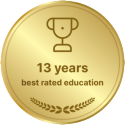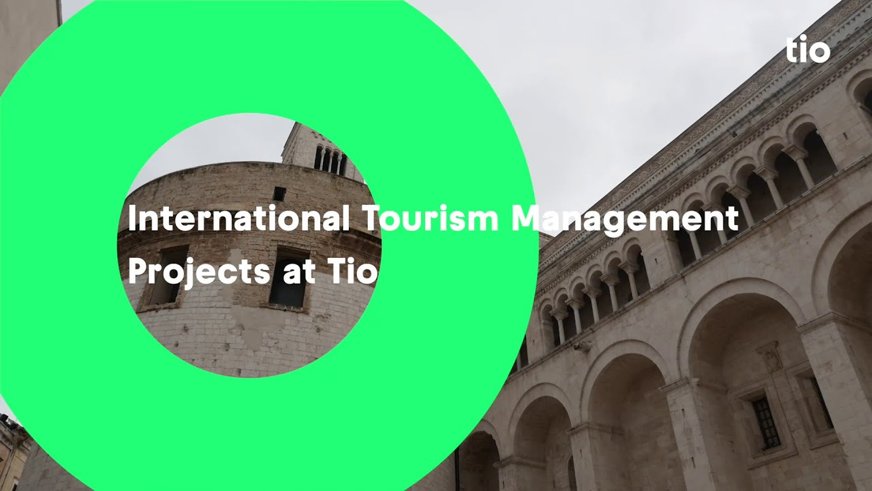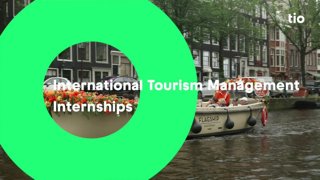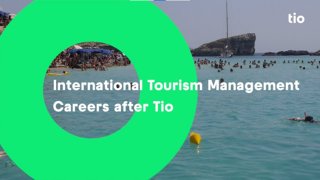International Tourism Management
 Holidays, business trips, trips around the world ...As a tourism manager, your job is to put together trips, make smart purchasing decisions and establish contacts all around the globe. Bachelor's degree International Tourism Management: your boarding pass to the future.
Holidays, business trips, trips around the world ...As a tourism manager, your job is to put together trips, make smart purchasing decisions and establish contacts all around the globe. Bachelor's degree International Tourism Management: your boarding pass to the future.
You might work as, for example, a product manager, event manager, travel adviser or city marketer. You can also start your own business.
Is this bachelor programme right for you?
Tio’s International Tourism Management bachelor programme combines knowledge of the world of tourism with aspects of e-commerce. This means you will feel right at home in the online world as well. Do you recognise yourself in the following description? Are you:
Do you recognise yourself in these descriptions? Take a look at the curriculum for more information about this bachelor programme or attend an open day to experience the atmosphere and meet students and lecturers.
Study programme
During the International Tourism Management bachelor programme, you will learn all the ins and outs of international tourism and event management. Find out what it takes to develop and plan an unforgettable experience and how to make sure you get the right people excited about a destination or event. These fields are broad: from international business conferences to sustainable group tours, and from travel planning to city marketing or destination management. After this programme, you will be ready for a fantastic future!
Best tourism study programme
For thirteen years, this bachelor's programme has taken top honours in the Higher Education Study Guide. The programme has also received the highest scores in the National Student Survey for twelve consecutive years. And the Elsevier survey on 'Best Study Programmes' awarded the study programme a gold medal as well.
Do you like to explore new countries and other cultures, are you commercially minded, and would you like to learn how to organise a successful event?
World traveller
Come develop your talents in the International Tourism Management degree programme. After completing the degree programme, you will be able to put together your own trips and organise international events on business-related and other themes. You will also know how to sell them, online and offline. As a tourism professional, you could go to work for a tour operator, for example, or start a business of your own.
Why do students choose International Tourism Management?
- Tio offers accelerated studying: bachelor’s degree in just three years and an Associate degree in 2 years.
- The tourism sector has a strong need for young professionals with in-depth knowledge of e-commerce. That is why Tio graduates are in high demand.
- Last year, Dutch tourists booked 78% of their trips online. The travel industry needs specialists in this field. The International Tourism Management programme therefore combines knowledge of tourism with e-commerce.
- You study at the Netherlands’ best tourism programme. Thirteen years running, as elected by the Higher Education Guide.
- Tourism involves much more than just booking a trip. MICE has become an integral part of the tourism sector, which is why event management is a major component of the International Tourism Management study programme.
- You will have many career opportunities available to you after completing this study course.
- At Tio there is a strong focus on personal development and supervision.
After graduating
Your International Tourism Management bachelor’s degree will open many doors for you. What about being a manager of sustainable tourism at TUI or working as a project manager at Zoover? Would you like to know more about your potential career paths?
This International Tourism Management bachelor’s degree has been accredited by the NVAO and educates students in three or four years for the professional competence level in Tourism & Recreation Management (ISAT-code: 34927). This degree allows students to use the internationally recognised title of Bachelor of Arts (BA). Also, you can earn your Associate degree in just 2 years.






